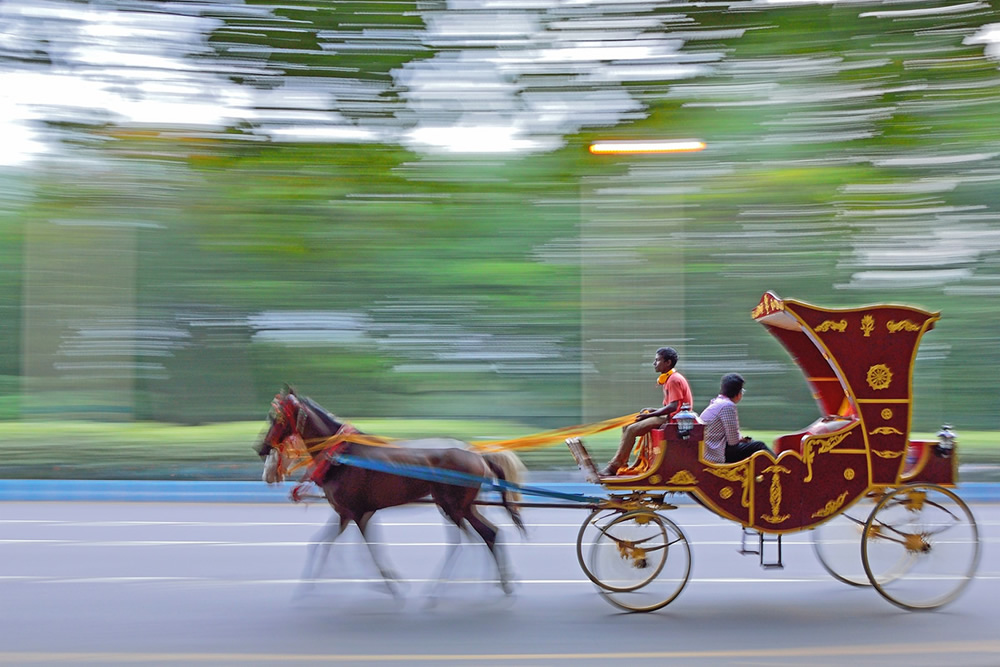We thought of bringing something grand for all the beginners and amateurs of photography out there. An article that can make an amateur know about the prime elements of photography and stuff inside his camera, paving way for his/her growth as a Photographer. It’s going to be a nightmare for any beginner to scroll around the priority modes with his DSLR, this article should get you fixed and should make you a pro in instance.
To begin with, all these three elements are important for making a picture, its more or less a combination of these 3 workings on an equal basis. But at times, we need to prioritize things, when we want to shoot a specific kind of a picture. That’s when all these priority options come into play. So before we jump into looking into these Priority options lets figure out what these terms actually mean.

Photo by: Subhabrata Roy
#1 Aperture
Aperture is a hole or opening for the light to travel through it. In simple terms, Bigger the hole maximum the light flow. The aperture is also responsible for the sharpness of the image relative to the quantity of light admitted inside. Resulting in a sharper image with very shallow defocus and then there is the aperture stop which is responsible for determining the ray cone angle responsible to the bright spot. Aperture is measured in terms of f/stops. Starting from the brightest and going to the dimmest they could be anywhere between f/1 to f/22.
Now we know, what aperture stop does and this aperture stop is very important in determining the depth of field of an image. In combination with the alterations of shutter speed and exposure, we can regulate light into the sensor and so on.
A lens with a larger aperture is often called a Prime lens or fixed focal length lenses. They are very fast lenses that allow more light compared to the zoom lenses. So when you shoot in aperture priority more often when you use prime lenses, when you don’t want to care about your shutter speed, and you can still adjust your exposure on the go.
Some Videos on Aperture
#2 Shutter Speed
The time given by you to the camera sensor for the amount of light for it to receive is called the Shutter Speed. In other words, the shutter speed is equal to the time the shutter remains open to click a picture. Faster shutter speed can freeze a moving object whereas a slow shutter speed can bring blur to your picture. Now let’s forget about aperture, logically lesser the shutter speed maximum the light entry into the sensor. Those fast action freezes or those blurry action shots are all due to shutter speed. Here there is no context to the aperture but again a combination with aperture can give you great results.
Imagine a huge tiger freezed while jumping over a deer with a great defocus background. This is where both aperture and shutter speed bond together and create magic. Also one should play safe with faster shutter speed since there is a high chance for the image to get underexposed.
Some Videos on Shutter Speed
#3 Exposure
OK. Now let’s speak about Exposure.
Exposure is the total amount of light allowed to enter the sensor, which is measured in terms of lux. Again exposure is solely dependent on shutter speed or aperture, even the physical formula says so.
- Exposure = Ev . t
- Hv is the luminous exposure (usually in lux seconds)
- Ev is the image-plane illuminance (usually in lux)
- t is the exposure time (in seconds)
At times every one of us click some burnt-out darks or the bleached out whites, which technically are called as underexposed or overexposed images.
So how do we know if an image is properly exposed, well watch out this section for some articles on zone system and its role in Photography.
Some Videos on Exposure
Don’t miss to check our previous Photography Tutorials:
- The Secret To Creating A Great Image By Cole Thompson
- Capturing The Light – Ultimate Tips And Examples
- Long Exposure Photography Tips, Tutorials And Videos
- The Importance Of Lines In Photography – An Overview With Superb Examples
- Essentials For Post Processing In Photography
- A Divine Fusion On Music & Photography – An Interesting Article
from 121clicks.com https://ift.tt/31fqBin
via IFTTT








0 comments:
Post a Comment